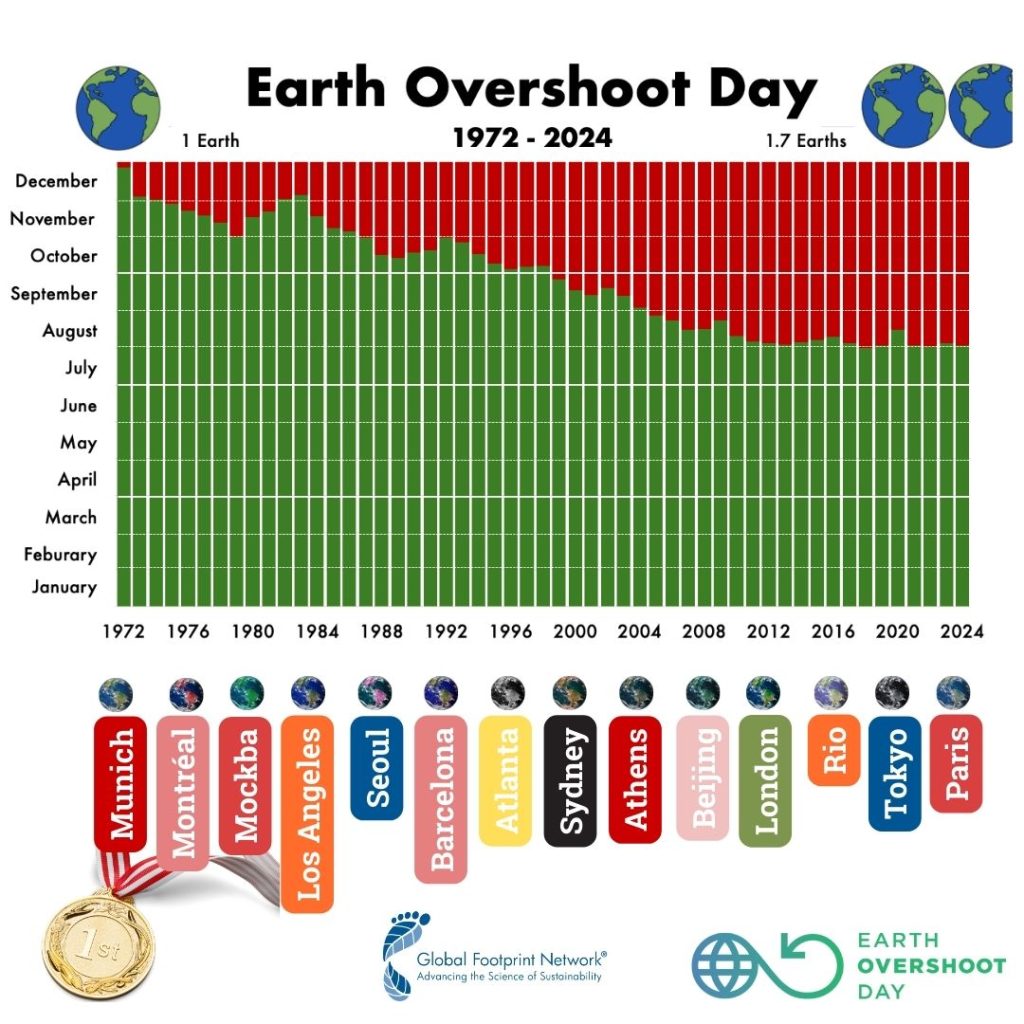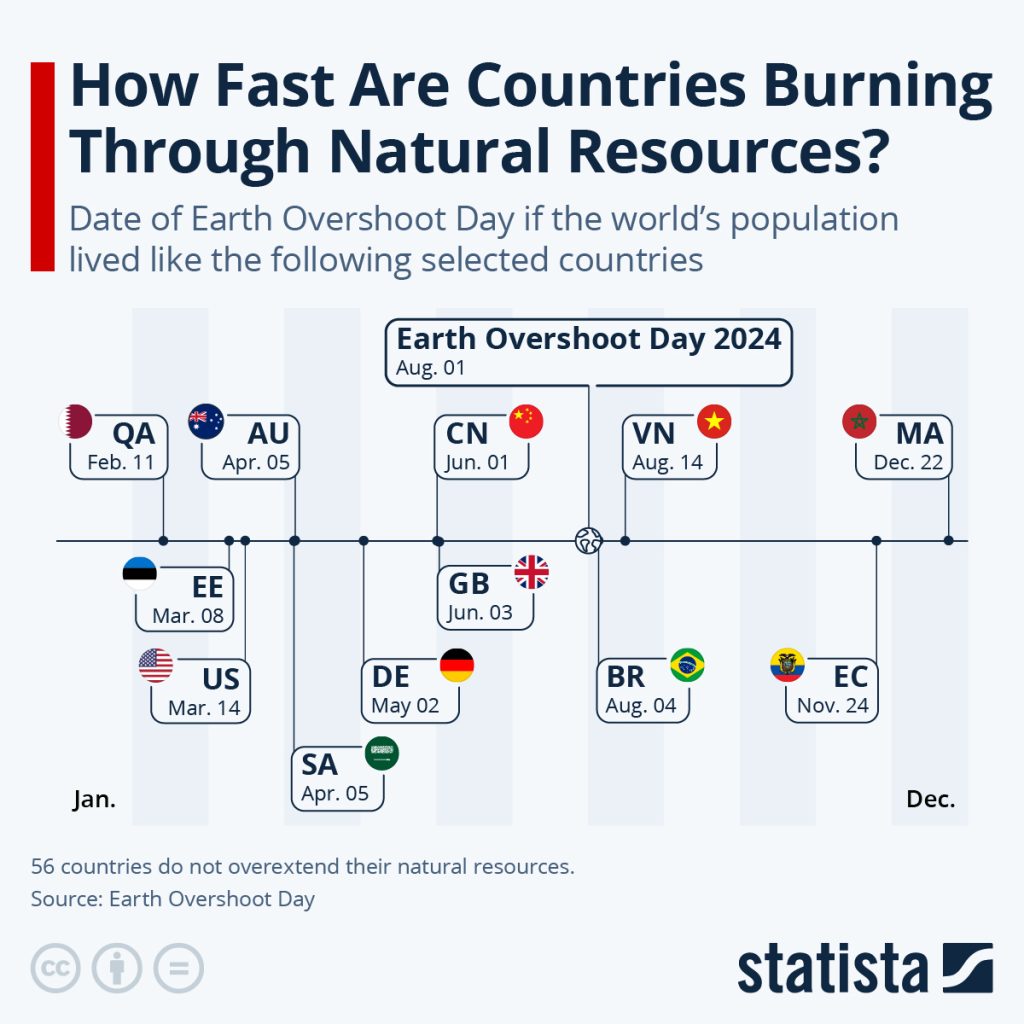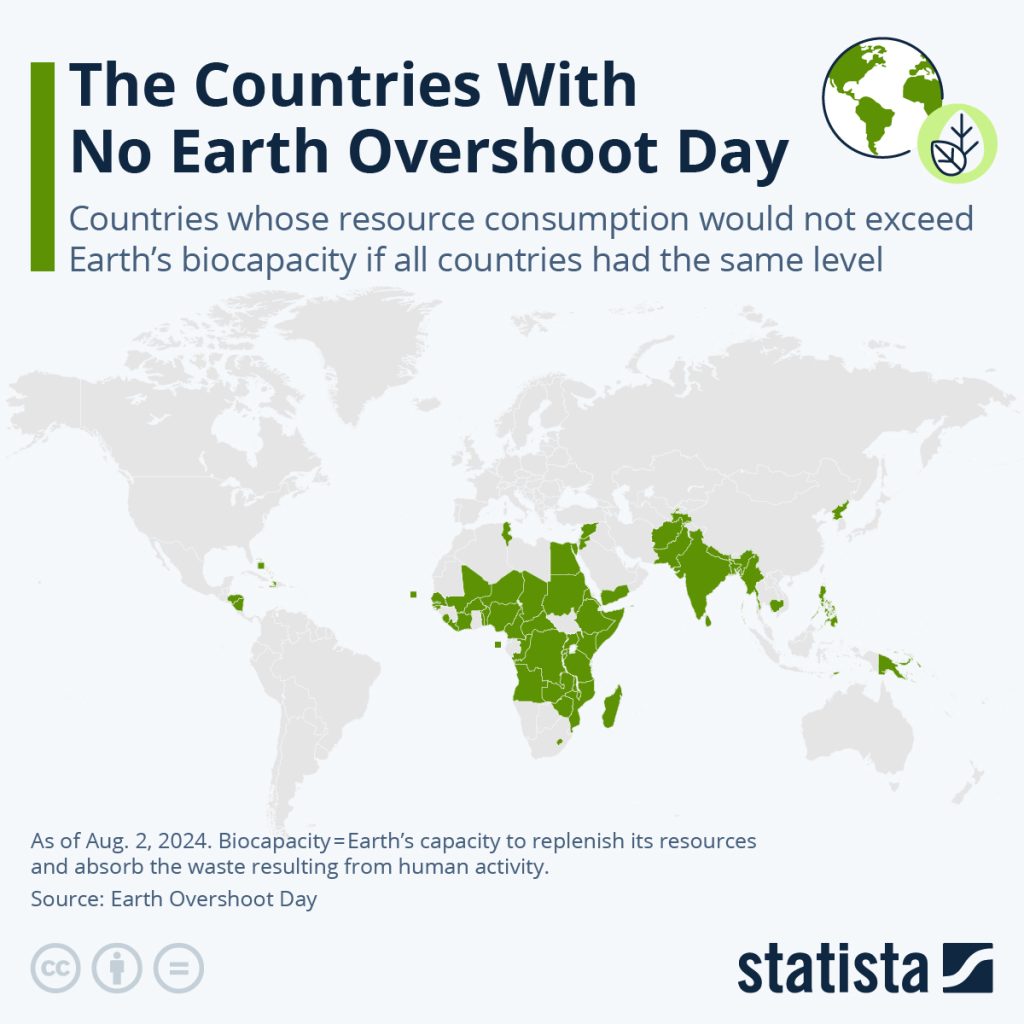Earth Overshoot Day 2024 came and went

August 1 was the crucial date
Earth Overshoot Day, when humanity has exhausted nature’s budget for the year, fell on August 1, 2024.
According to calculations based on the National Footprint and Biocapacity Accounts, managed by York University in Toronto under the governance of FoDaFo, this day marked a critical juncture in humanity’s environmental trajectory.
Earth Overshoot Day, defined by the global think tank Global Footprint Network, highlights the discrepancy between our ecological footprint and the planet’s biocapacity.
When this day arrives, it signifies that humanity has consumed natural resources at a rate 1.7 times faster than the Earth’s ecosystems can regenerate. In effect, humanity is utilising resources like we had 1.7 Earths at our disposal.
The implications of this overshoot are profound. The relentless overuse of natural capital is leading to severe environmental degradation, including deforestation, soil erosion, and biodiversity loss.
Additionally, the excessive buildup of carbon dioxide in the atmosphere is driving climate change, contributing to more frequent extreme weather events and diminished agricultural productivity.
New occurrence
While Earth Overshoot Day had been relatively stable for nearly a decade, it now consistently occurs just over seven months into the year.
The remaining months represent the additional strain on the biosphere, exacerbating long-term environmental damage. Despite the steady date, the pressure on the planet continues to escalate, making the situation increasingly precarious.

The trajectory of Earth Overshoot Day poses a crucial question: Will we address this challenge through intentional action or be forced to face the consequences of inaction? The preferable route is a proactive one, involving focused and innovative efforts akin to those demonstrated by athletes in the Olympics.
Historical milestones in environmental use reflect this trend. For example, in 1968, when Dick Fosbury transformed the high jump, humanity’s resource use was just under one Earth. By 1988, with Olympian Lawrence Lemieux making headlines for his sportsmanship, our consumption had already reached 1.3 Earths.

In 2008, as Usain Bolt set new Olympic records, human resource use had escalated to 1.6 Earths. With Earth Overshoot Day arriving earlier each year, the challenge is to reverse this trend with the same determination and speed.
Actionable solutions, which can be financially beneficial, are available to #MoveTheDate of Earth Overshoot Day. Critical areas for intervention include cities, energy, food, population, and planet. The Power of Possibility outlines strategies such as halving CO2 emissions from fossil fuels, which could push the date back by three months.

Businesses that integrate sustainability into their growth strategies may help the environment and position themselves advantageously in a future constrained by climate change and resource limits.
As Earth Overshoot Day 2024 passed, the call to action was clear: embrace innovation, make deliberate efforts, and commit to sustainable practices to ensure a resilient and thriving planet for future generations.
Featured image: Earth Overshoot Day is arriving earlier each year. Credit: Bill White
Last Updated on 8 months by Dan Ngiam













